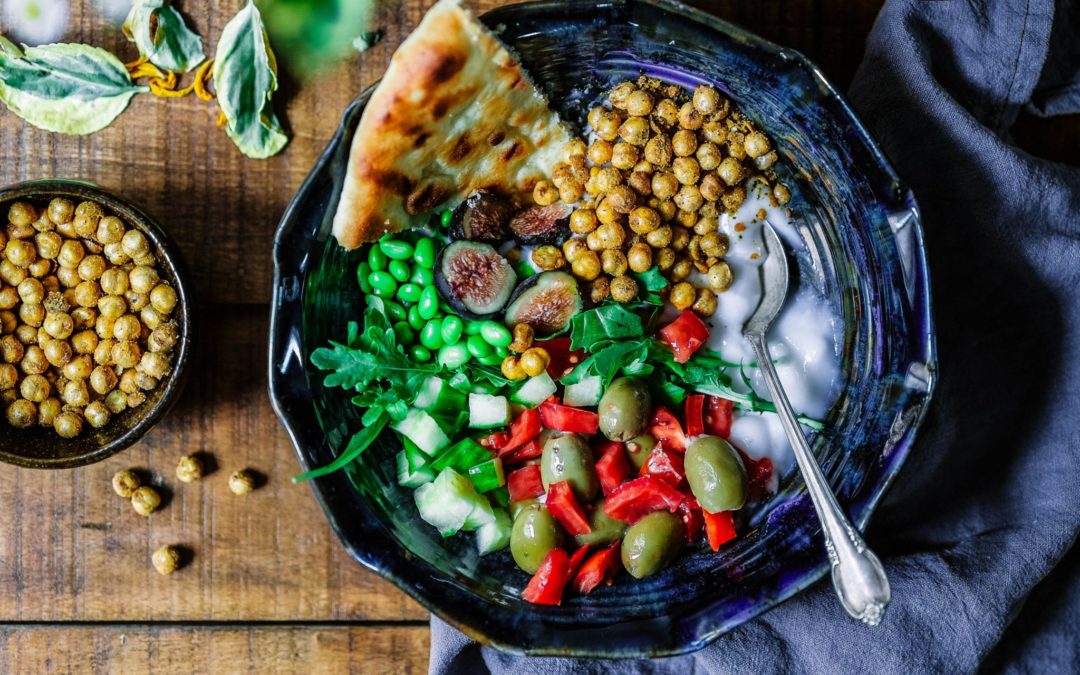Our diet and what we eat can make a difference in how we fight inflammation. Vegetables, low-sugar fruits, healthy fats from avocados, fish, and nuts, herbs, and spices (like turmeric and black pepper) can all help to reduce inflammation in the body.
An anti-inflammatory diet follows some simple principles:
- Eat a variety of fruits and vegetables
- Minimize “bad” fats (saturated and trans fats)
- Include omega-3 fatty acids
- Sharply decrease or eliminate refined flours and sugars
- Avoid processed foods
- Add spice to combat inflammation
Here are some simple meal ideas that are packed with anti-inflammatory rich foods.
• Breakfast: A smoothie with strawberries, avocado, kale, and apple; a chia bowl; scrambled eggs with turmeric and black pepper; or oatmeal with berries and little dark chocolate nibs.
• Lunch: lentils with brown rice and kale or grilled salmon and broccoli.
• Dinner: Salmon with zucchini pasta and pesto (I buy a gluten-free one), stuffed red pepper, or Vegetarian Chili.
• Snacks: fresh berry fruit salad, apples, a piece of 70% + sea salt dark chocolate, chia seed pudding, or guacamole on a whole-grain toast with black pepper.
• Drinks: ginger turmeric tea, a kale/apple/spinach/pineapple smoothie, herbal tea, turmeric tea, green tea.
If changing your diet is overwhelming to you, start with changing breakfast. Lifestyle changes, such as your diet can have many emotions attached to them. Emotional eating takes time to adjust. Set a goal to try something new each week; eventually the new will feel normal.
Photo by Edgar Castrejon on Unsplash

